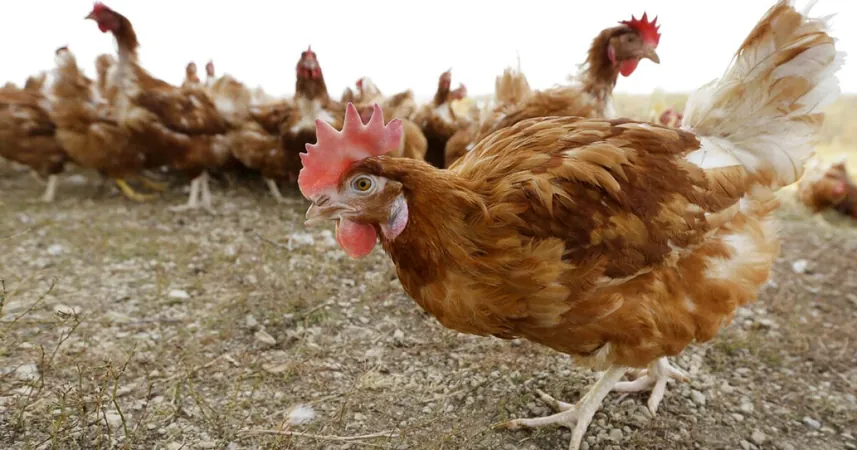
Alarm Bells Ring: Bird Flu Case Confirmed in Backyard Flock in Maricopa County!
2024-11-26
Author: Chun
In a startling turn of events, a case of avian influenza, commonly known as bird flu, has been confirmed in a backyard poultry flock located in Maricopa County, Arizona. This announcement from state officials on Monday has raised concerns about the spread of this highly contagious disease.
The Arizona Department of Health Services (ADHS) reported that samples were tested, with the positive result for the disease emerging on November 21. The poultry owner, noticing signs of illness among their birds, acted promptly by contacting the Sick Bird Hotline, which allowed state officials to respond swiftly and effectively to mitigate any potential spread of the virus.
"ADHS is actively collaborating with the Arizona Department of Agriculture (AZDA) and local health departments. We are committed to closely monitoring any influenza activity throughout Arizona," stated Nicole Witt, ADHS Assistant Director of Preparedness. She assured the public that while the risk to general health remains low, those working directly with birds or who might be exposed are advised to adhere to public health guidelines to protect themselves.
In response to the outbreak, the affected area has been promptly placed under quarantine, and substantial efforts are underway to eliminate the virus and prevent further transmission. This issue has become even more pressing given that just earlier this month, a separate bird flu case was reported on a commercial poultry farm in nearby Pinal County. That facility was also quarantined, implementing strict measures to eradicate the virus.
Health officials are urging bird owners to remain vigilant and monitor their flocks for any signs of illness. Symptoms of avian influenza can include lethargy, a decrease in egg production, and respiratory issues among birds. Quick reporting can make a significant difference in controlling outbreaks. As the situation evolves, the community is encouraged to stay informed and take precautionary measures to safeguard both their flocks and public health.



 Brasil (PT)
Brasil (PT)
 Canada (EN)
Canada (EN)
 Chile (ES)
Chile (ES)
 España (ES)
España (ES)
 France (FR)
France (FR)
 Hong Kong (EN)
Hong Kong (EN)
 Italia (IT)
Italia (IT)
 日本 (JA)
日本 (JA)
 Magyarország (HU)
Magyarország (HU)
 Norge (NO)
Norge (NO)
 Polska (PL)
Polska (PL)
 Schweiz (DE)
Schweiz (DE)
 Singapore (EN)
Singapore (EN)
 Sverige (SV)
Sverige (SV)
 Suomi (FI)
Suomi (FI)
 Türkiye (TR)
Türkiye (TR)